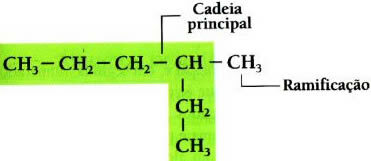We cannot say for sure when Parmenides was born and died, only to locate him between the end of the fourth century and the beginning of the fifth century BC. Ç. We know, however, that he was the creator of Eleatic School. The thought of the Eleatic School, of which they are also representatives Melisso and Zeno, is marked by not looking for an explanation of reality based on nature.
The concerns of the Eleatic philosophers were more abstract and we can see in them the first breath of logic and metaphysics. They defended the existence of a single reality, which is why they were also known as monists, as opposed to motoring. Reality for them is unique, immobile, eternal, unchanging, without beginning or end, continuous and indivisible.
Parmenides wrote in poem form his main philosophical ideas. 160 verses have survived, which are considered the greatest text of the pre-Socratics.
Divided into three parts – Proem, First Part and Second Part –, the poem about nature shows that there are two ways of understanding reality. The first, that of truth, reason and essence, is the most important and the one that resonates in the work of later philosophers. If the person is guided only by reason, he will understand that “what is, is – and cannot be otherwise”.
The Being for Parmenides:
Parmenides defended four arguments that are a starting point for his claims regarding the attributes of Being. The arguments are:
1) The to be is and can't not be;
2) The nothing (not to be) is not and it can not be;
3) Pto think and to be are the same;
4) The not being cannot be thought or stated;
Let's see how these four arguments lead to the attributes of Being:
1) Being is identical to itself: if the Being were different from itself, it would not be what "is". In other words: if it were not identical to itself, Being would not be itself, which is impossible, since being “cannot not be”.
2) The being is one: We cannot conceive that there is another Being, for if there were a "second being", it would be different from the "first being" - the which is impossible, since, thus, "the first being" would not have to be the "second being" and would have to be understood as not being. Furthermore, it is absurd to think that Being is not. Therefore, there can only be one Being.
3) Being cannot be generated: Nothing can be generated from nothing (“nothing is not and cannot be”), so it cannot give rise to Being. If it were generated from another Being, as we saw in point 2, this would be admitting that there are two beings and one of them would be the “non-being” of another, and this is impossible.
4) Being is imperishable: Parmenides says that if it is not generated, Being is also imperishable, otherwise it would become non-being. If the Being is not generated, it has always existed, then it would have already experienced all the conditions that could make it cease to be. If this did not happen, it is because Being is "without beginning and without end", that is, in relation to time, the being is eternal.
5) Being is indivisible: If Being could be divided, the division would result in multiple beings – which is impossible, as we saw in point 2. Likewise, each of these multiple beings would be the non-being of the other, which is also impossible. We would also assume, from the division, the existence of a Being that would divide the other being. So, as Parmenides said in fragment B8:
[The Being] It's not even divisible, since it's all homogeneous (...), but it's all full of what it is.*
6) Being is immutable. The change would make the Being stop being what it is and become something it is not yet. Thus, to admit the possibility of change would be to admit the opposite of what we have already studied: what is not being nothing is, that is, we would come to agree with the existence of non-being. If even the passage of time is not admitted in Parmenidian thought, as the Being would be eternal, it is not difficult understand that the other changes must be excluded, as it is only possible to think of change in relation to the temporality. We only notice the change of an object A because in the past it was A, and in the present moment it is B. This is why Parmenides says that Being "never was nor will be, as it is, in the present moment."
7) the being is immobile: In the same way that temporality is associated with change, it is associated with space: to move from one place to another, it is also necessary to move in time. To understand it better, we can't be at school and at the mall at the same time. However, to leave school and reach the mall, there must be a passage of time. As, for Parmenides, Being is outside the category of "time", as it is eternal, we cannot place it in the category of "space" either. For this reason, Parmenides says that being “rests in itself, always (…) in the same place”.
*The quote from the poem “About Nature” is as translated by Professor Dr. José Gabriel Trindade Santos. Modified by the translator. First edition, Loyola, São Paulo, Brazil, 2002. Available in: http://charlezine.com.br/wp-content/uploads/Da-Natureza-Parm%C3%AAnides.pdf.
By Wigvan Pereira
Graduated in Philosophy
Source: Brazil School - https://brasilescola.uol.com.br/filosofia/o-ser-para-parmenides.htm


